A Seleção for GOOD magazine
Illustrations of legendary Brazilian soccer players who made a difference in society. Concepts of portraits are based on stories about humanitarian activities of each brazilian soccer player.
*Merit Award at 3x3 Professional Show winner
Portrait below — created from a real hair — won a Merit Award in Editorial Portraits category.
June 2015
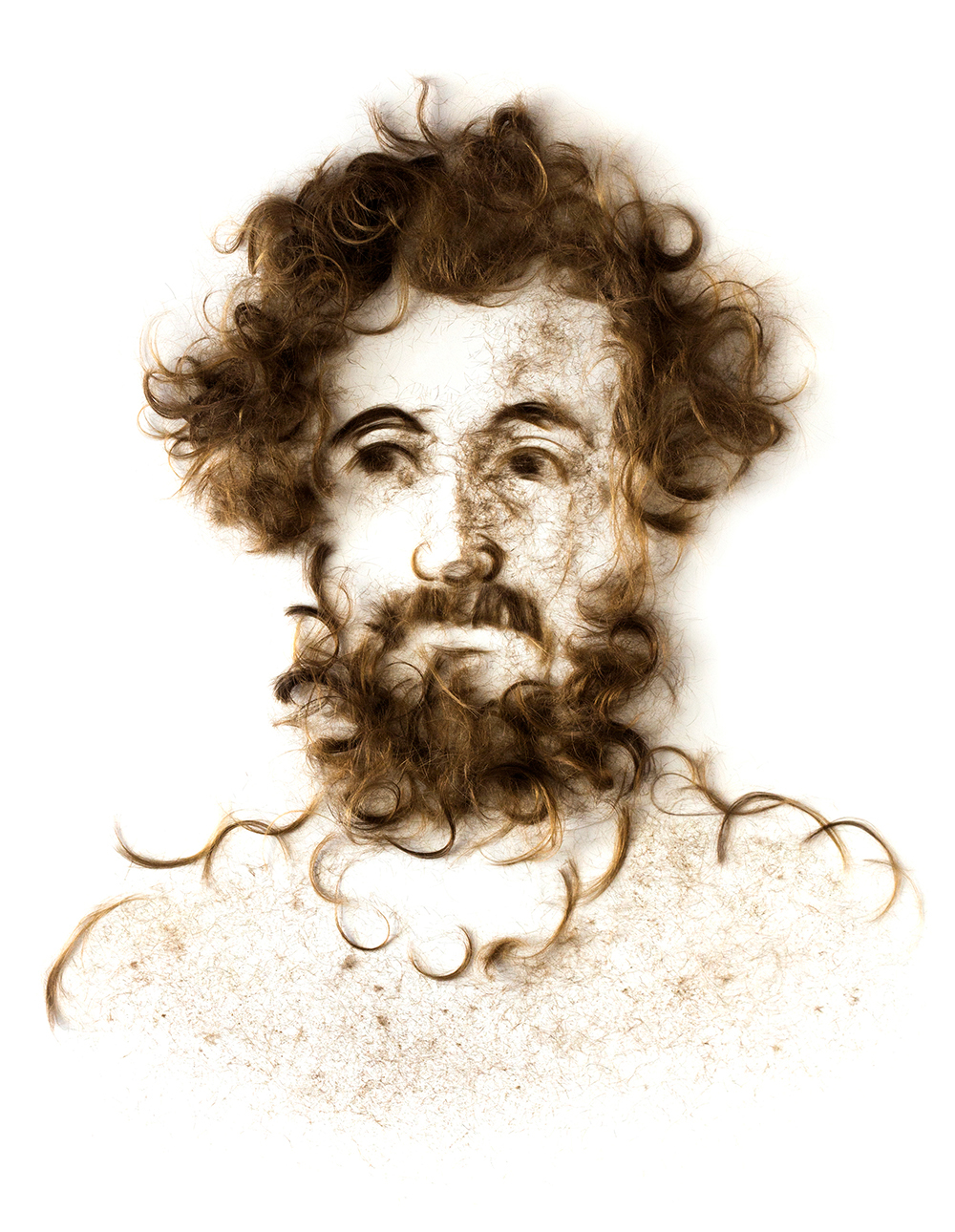
Afonsinho
Afonsinho’s wild, flowing beard was dubbed a sign of dangerous nonconformity by authorities—there were even attempts to censor photos of him so that people wouldn’t see his hair and be inspired to rebel. The 66-year-old’s outspoken criticism of Brazil during the lead up to this year’s World Cup shows that his righteous indignation has hardly waned.
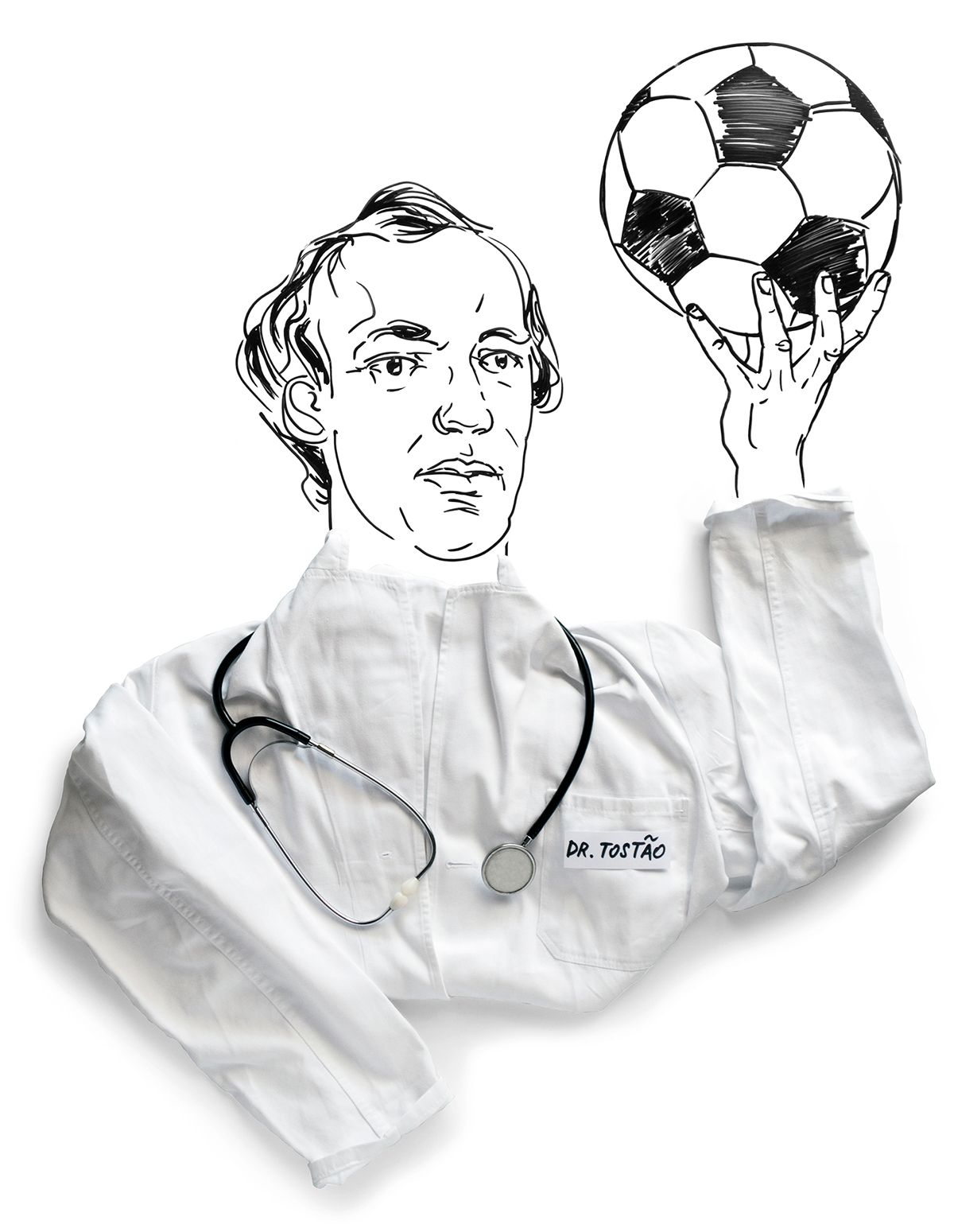
Tostão
An accident when he was six turned Tostão into a natural leftist: he couldn't even kick with his right foot until he was in his 20s. Side by side with Pelé, he made for an invincible attack that won Brazil the 1970 World Cup, but he always insisted that "Playing ball was just a detour on the way to change the world." He went on to be a professor of medicine and an op-ed columnist for the Folha de São Paulo, Brazil's newspaper of record.
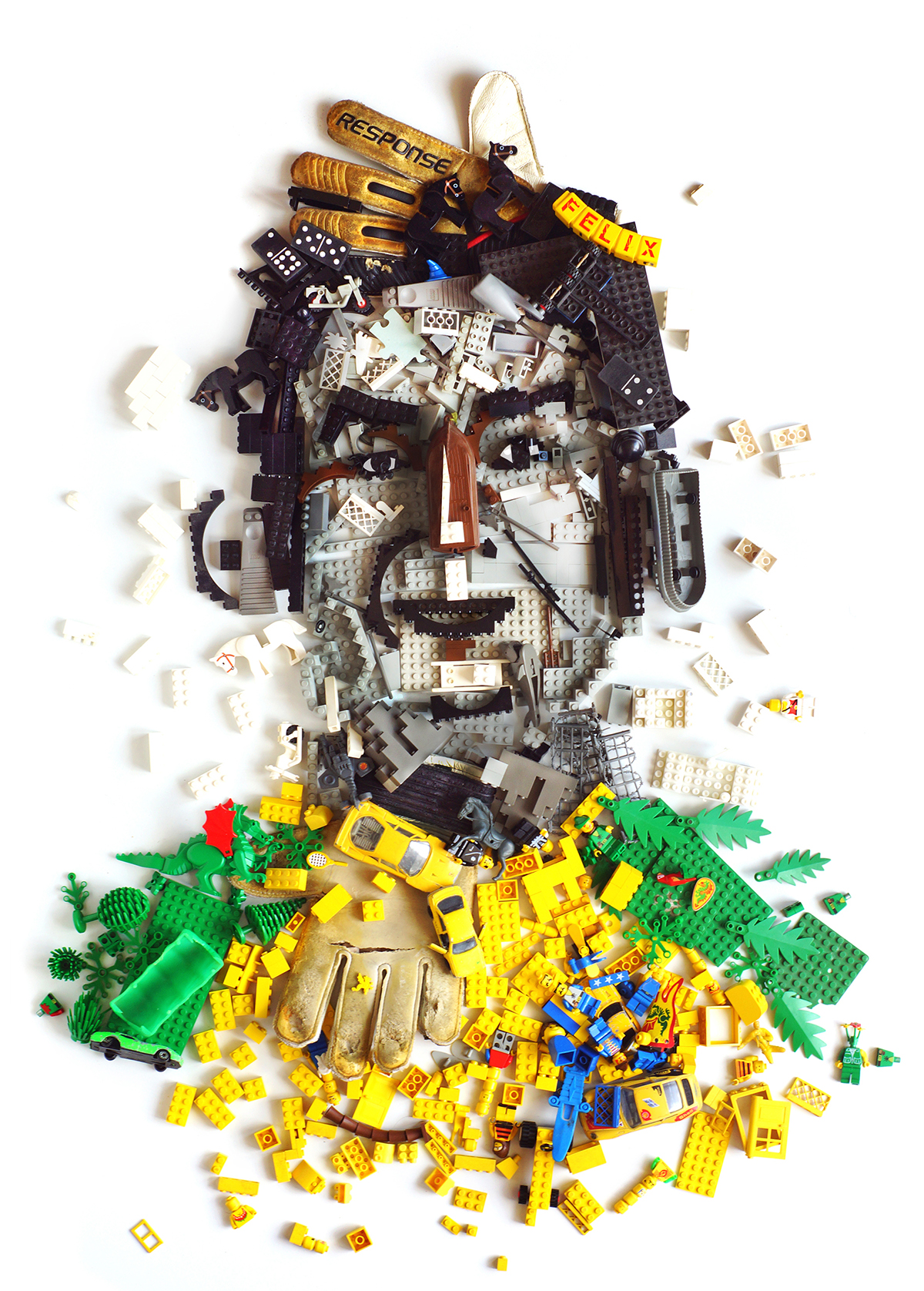
Félix
He gave his teams the best chance to win for nearly three decades, winning a World Cup in 1970. When he was done, he worked to give poor children in rural São Paulo their own best chances to succeed. He created and ran a football school for marginalized children, and lobbied for better government services for kids before his death in 2012.
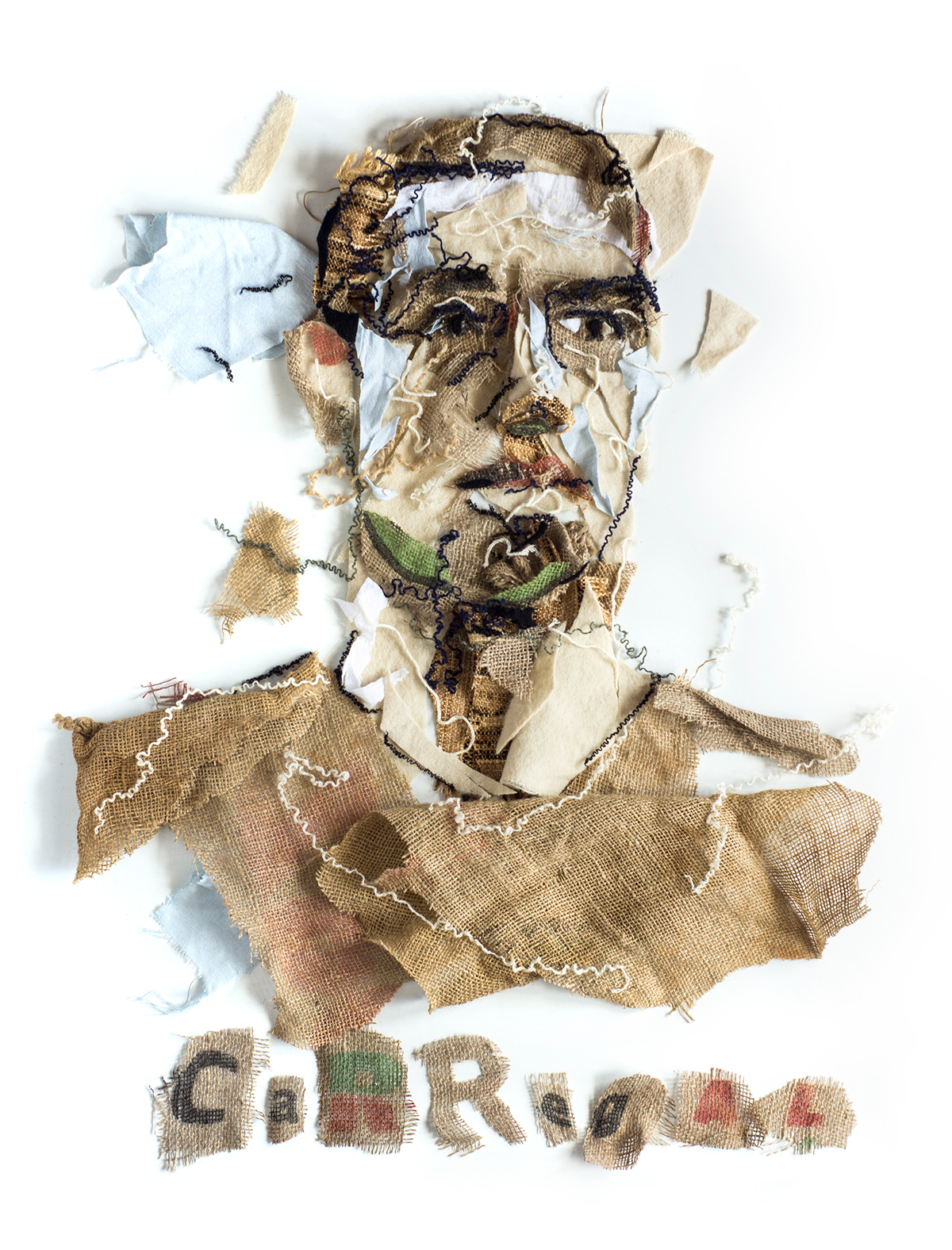
Francisco Carregal
In the first years of Brazilian soccer, the sport was the domain of the rich, white elite, but Francisco Carregal, a black worker on the textile line in Bangu, played the game so well that the factory bosses invited him onto their team in 1905. The first black to play professional soccer in Brazil, Carregal paved the way for Brazil's poor to dominate the game over the next decades.
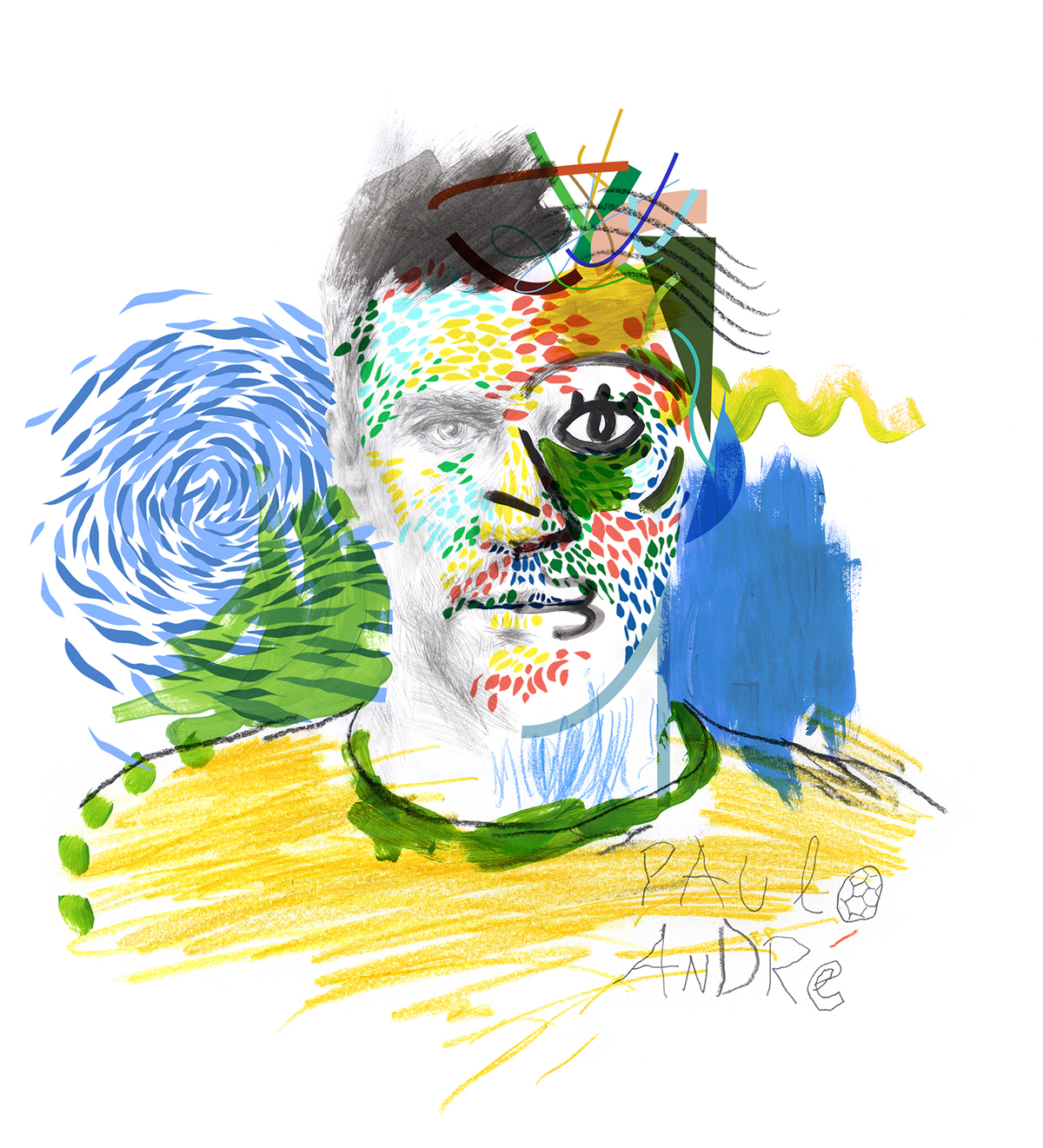
Paulo André
He completely shut down the Chelsea attack as Corinthians won the 2012 Club World Cup, then used his momentum to organize the "Bom Senso FC," a nascent players union for professionals in Brazil. He also created a non-profit dedicated to arts education in the favelas of his native Campinas.
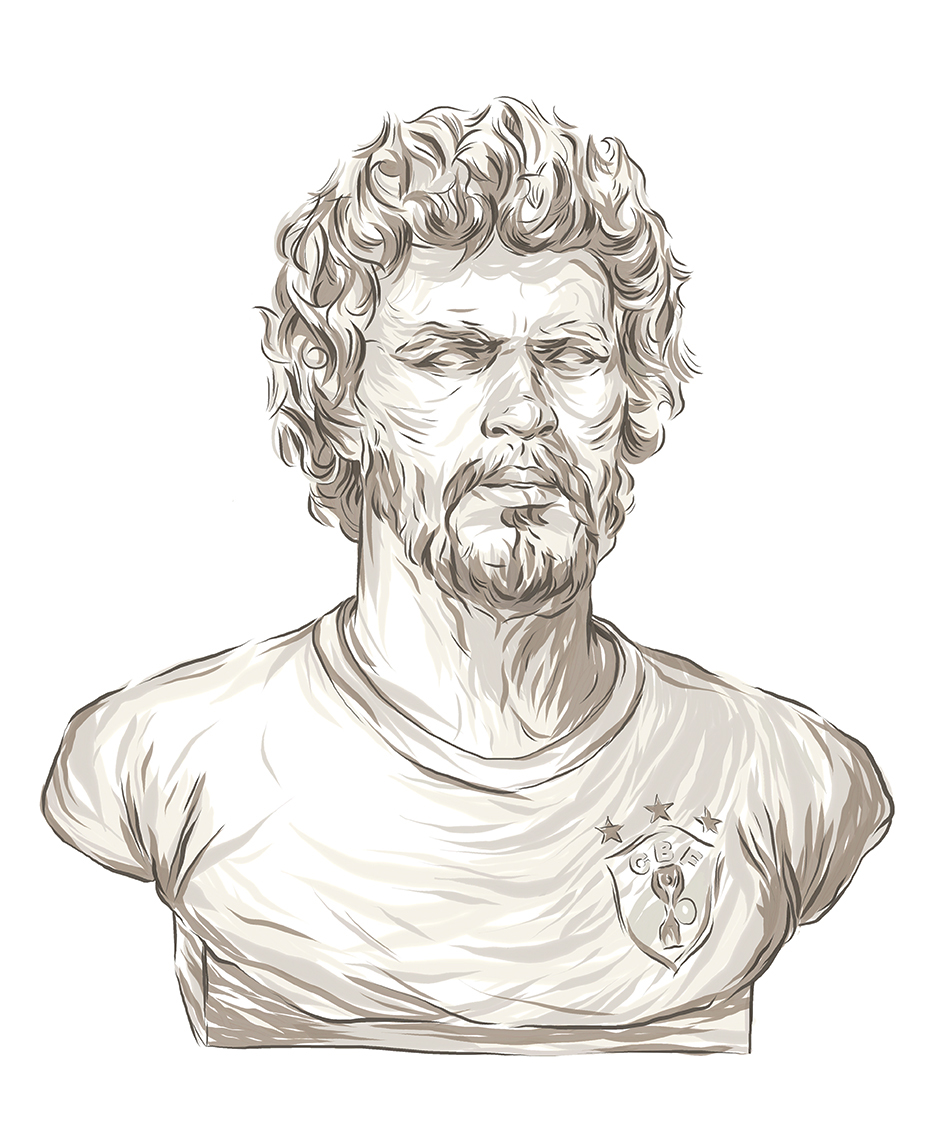
Sócrates
The mastermind and visionary of the 1980s national team, Sócrates also organized Democracia Corinthiana, an anarcho-syndicalistic takeover of the famed soccer team that also turned it into the best squad in Brazil. An ardent advocate of real democracy, Sócrates helped lead the Direitas Já movement that overthrew the Brazilian junta in the late 1980s.
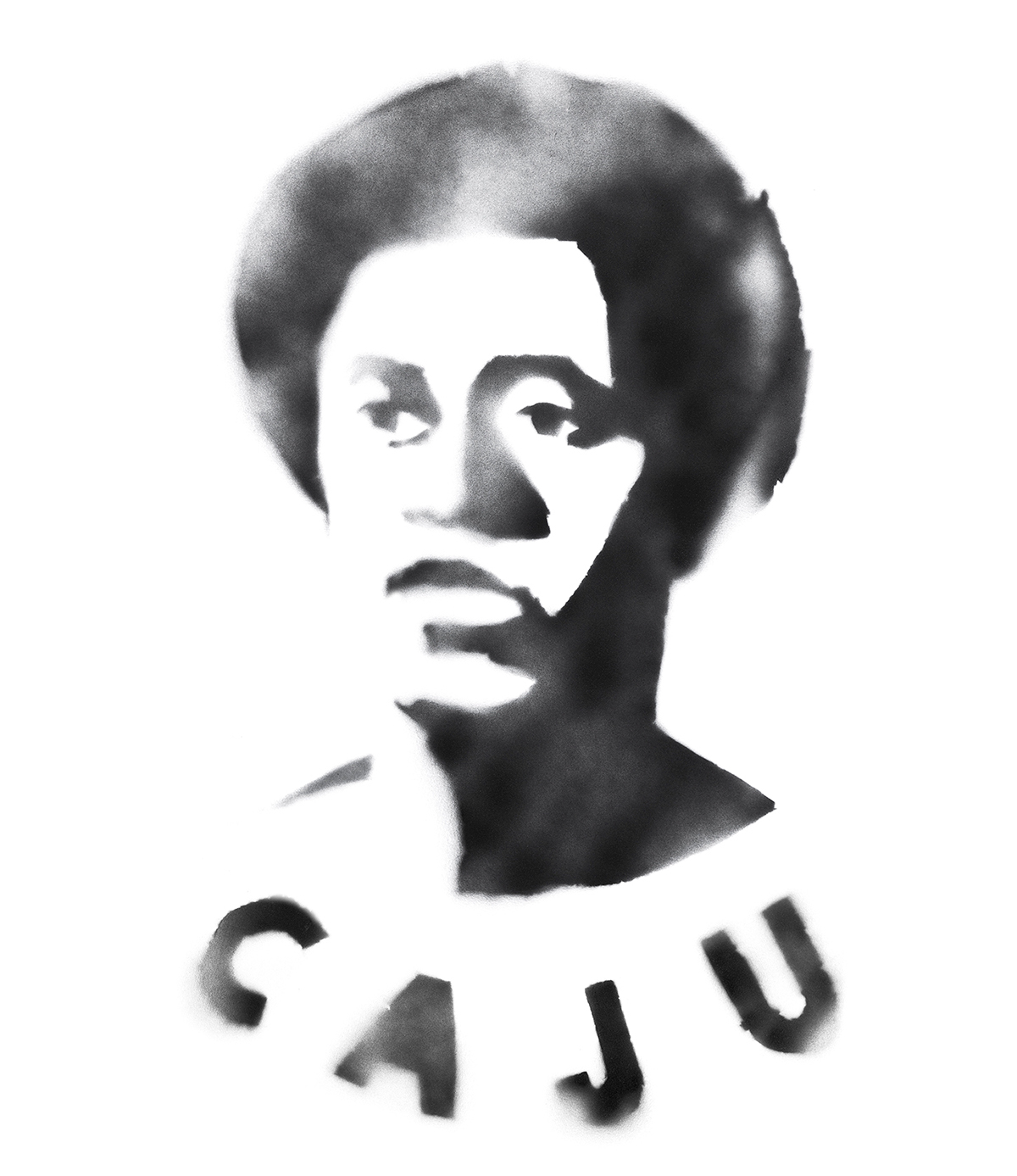
Paulo Cézar Caju
Born in the favelas of Rio de Janeiro, Caju talked his way into a tryout for Botafogo and almost instantly became a star. Flamboyant and combative, he was a dangerous presence on the left side of the attack on Brazil’s 1970 and 1974 World Cup teams, but also in public debates. Caju famously wrote a column in the satirical magazine O Pasquim where he challenged the repression of the military dictatorships. Though other players had grown Afros before him, Caju was perhaps the first to wear one self-consciously as an expression of Black Power in Brazil.
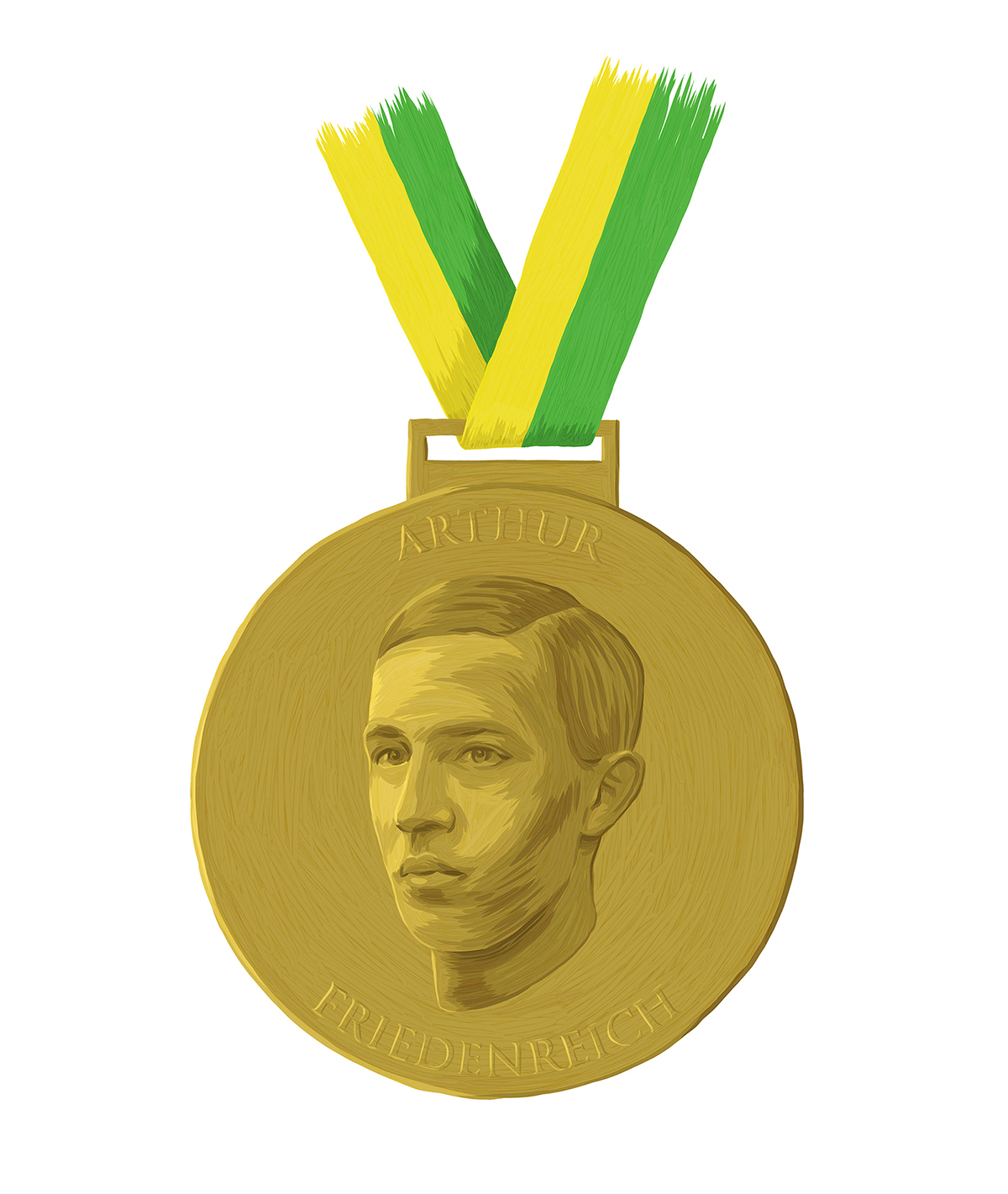
Friede
Black people couldn't even enter many of the clubs where formal teams played soccer in 1913, but Arthur Friedenreich's German name got him past the gate. The first great striker for the Brazilian national team, Friede changed ideas about sport and race. After retiring, he sold almost all of his trophies and prizes to support a 1932 revolution against the Vargas dictatorship, now seen as one of the keys to Brazil's democratic development.


